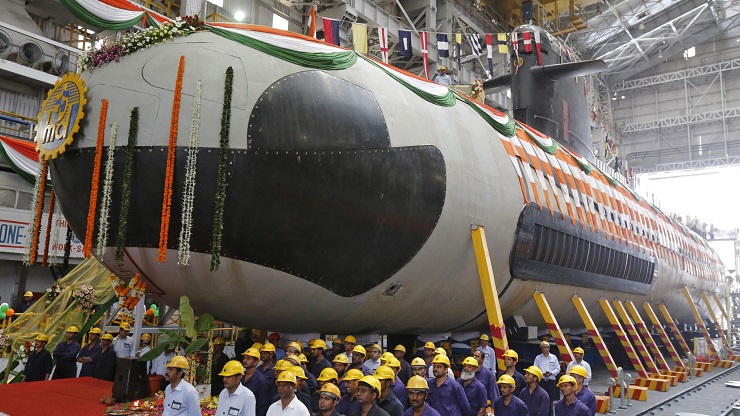The relationship between India and Russia is a strategic partnership based on a rich historical heritage. Signed twenty years ago on October 3, 2000, the Declaration on Strategic Partnership between the two countries formalized a partnership that is gaining strength year by year and is truly strategic in nature, possessing a unique factor of permanence in today’s unstable world. It has been tested by time over many decades, in many ways hardened under the blows of geopolitical storms, and demonstrates a positive dynamics of cooperation in various areas. Its important elements are joint ventures as well as the “Make in India” program.
Since the signing of the Declaration, bilateral ties between Russia and India have developed a new nature, increasing the level of interaction in almost all areas, including politics, security, trade and economic cooperation, science, technology and culture. Cooperation in the Arctic, as well as cooperation in the Far East and related projects, was the next frontier of partnership.
Russian-Indian cooperation in space research and the peaceful use of outer space has been in existence for about four decades and includes satellite launches, the GLONASS navigation system, remote sensing, and other areas. Russia is an essential partner for India in the area of peaceful uses of nuclear energy; it recognizes India as a country with advanced nuclear technology and an impeccable reputation for nuclear nonproliferation.
The diversified interaction and cooperation in the energy sector is confirmed by the activities of Rosneft, which works with one of India’s major refineries, one of the largest consumers of energy resources in the world. Consequently, the area of interaction is quite extensive, not only in oil refining, but also in oil production. The GAIL gas company has signed a contract with Russia’s Gazprom to supply 2.5 million tons of LNG per year. India is on the path to converting its energy generation to natural gas, and a sustained partnership with Russia is an important pillar in this promising vision.
Military-technical cooperation is crucial to the strategic partnership between the two countries. Moreover, it is worth bearing in mind India’s complicated situation with regard to territorial disputes, as a result of which it is Moscow that supplies arms to New Delhi. And while the US has relied on Pakistan in regional politics, Russia has always emphasized the Indian market. The agreement on S-400 surface-to-air missile systems is a major breakthrough in this regard; under the deal signed, New Delhi will receive five regiments of S-400 “Triumf” air defense systems worth $5.43 billion in the near future. Recently, military-technical cooperation has evolved from a “buyer-seller” scheme to a system of joint research, development and production of advanced defense systems. Vivid examples of such advanced cooperation are the Brahmos missile system, as well as the licensed production of Su-30 aircraft and T-90 tanks in India.
India’s intention to lease another submarine from Russia is one more step on its path toward acquiring a nuclear submarine fleet of its own and the latest example of long-term military cooperation between Moscow and New Delhi. India has demonstrated its willingness to lease rather than produce or directly import submarines from Russia: in 1986, the Soviet Union became the first country to lease a nuclear submarine. And now, in an effort to strengthen military relations, Moscow has signed a deal with New Delhi for a 10-year lease on the “Scat” project SSBNs. In the naval field, there is an active contract to build four Project 11356 frigates; in addition, Russian shipbuilders are promoting Project 12701 “Alexandrit-E” destroyers and Project 677E “Lada” non-nuclear submarines to the Indian market.
At the India’s largest aerospace international air show Aero India 2021, held in the Indian city of Bangalore from February 3 to 5, Rostec demonstrated more than 200 exhibits of military products, including a full-size model of the Su-57E fifth generation multipurpose aircraft, which gives an idea of this unique fighter. There were also demonstrated other Russian “bestsellers” – Su-35, MiG-35D, military transport IL-76MD-90A(E), IL-78MK-90A tanker aircraft, promising unified wheeled armored platform Boomerang, air defense systems, armored vehicles and ammunition. Russia has offered its Indian partners to make a joint development on the basis of IL-114-300 – a Russian-Indian modification, as well as to set up in India the production of another newest Russian civilian aircraft MS-21. In addition, an enterprise for repairing Russian engines for Mi-17 transport helicopters will be opened in India this year. The equipment for the center has already been delivered, and full certification of the production is scheduled for 2022. In 2019, the order book with India rose to $14 billion, or nearly 30 percent of Russia’s weapons portfolio in recent years.
India’s political weight in the world allows it to pursue an independent policy in arms procurement, despite increased pressure from the United States, which in recent years has not abandoned its attempts to expand its presence in the Indian market, largely at the expense of Russia. These features were manifested, for example, in the epic saga of India’s purchase of the Russian S-400 SAM system, the contract for the purchase of 10 divisions of which was eventually signed, despite the imposition of US CAATSA sanctions. The first deliveries under this contract should take place as early as this year, and the first Indian specialists to master this advanced world complex have already left for Russia at the beginning of the year. Russia actually had to develop a variant of the Su-30MKI fighter tailored to the order for New Delhi.
The diverse range of civil and military contracts between Russia and India is a clear indication of further strengthening of strategic cooperation between the two countries, thus prompting the author to expect that India’s position as the leading importer of Russian arms will not be shaken anytime soon.
Vladimir Platov, an expert on the Middle East, exclusively for the online magazine “New Eastern Outlook”.

